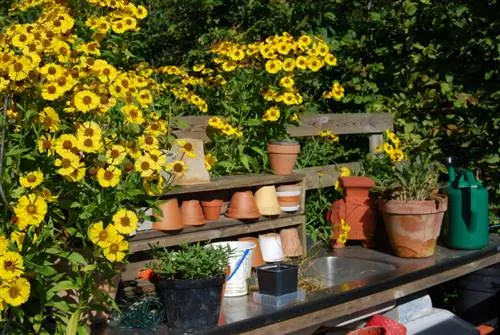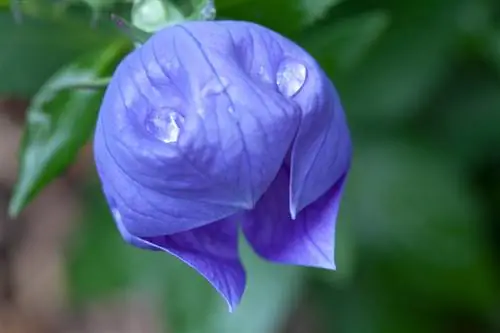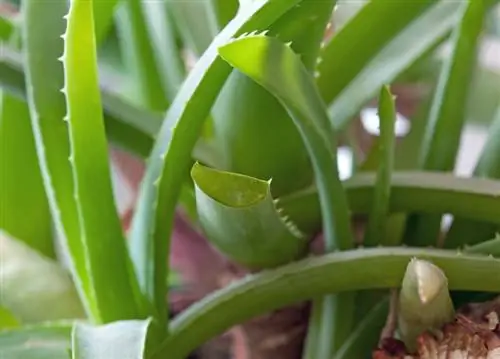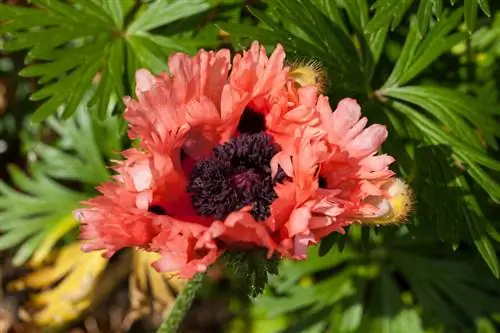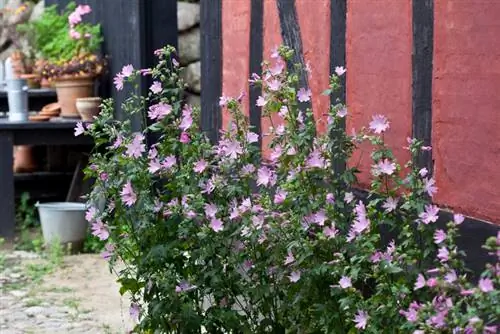- Author admin leonars@hobbygardeners.com.
- Public 2023-12-16 16:46.
- Last modified 2025-01-23 11:20.
Whether in a wild garden meadow, in the background of the perennial bed, on the side of the path or elsewhere - the Turkish poppy is an eye-catcher in almost every location with its large flowers. How to care for him to stay he althy for many years?

How do you properly care for the Turkish poppy?
The Turkish poppy requires little care: water during prolonged drought, fertilize sparingly in autumn and spring, cut only when necessary in autumn and protect young shoots with brushwood in winter. Watch out for waterlogging and fungal diseases.
How often does it need to be watered?
Due to its origin in the dry mountainous regions of Asia Minor, the Turkish poppy tolerates drought and heat extremely well at times. It should only be watered outdoors if the dry periods last longer.
Watering is more important in the pot. The earth should not dry out completely. It is better to water rarely and heavily rather than daily and little. Then the root system develops better. Attention: Avoid waterlogging by ensuring good drainage!
Why don't you need to cut the Turkish poppy?
After flowering, the leaves die off. The plant withdraws completely above ground. But that doesn't mean the end. New leaves emerge in autumn. The period between July and September is just a kind of rest period. Therefore, you don't necessarily have to cut this perennial.
Please note if you still want to cut:
- pruning takes place in autumn
- only cut off when the leaves have turned yellow-brown
- cut short above the ground
- for cut flowers: cut when the buds are still closed
- these cut flowers last up to 3 weeks in the vase
Does this plant need fertilizer?
The Turkish poppy does not necessarily need fertilizer every month. It copes with poor soils. However, adding complete fertilizer such as compost (€27.00 on Amazon) in autumn and spring is beneficial. It promotes flowering. In the pot, the Turkish poppy should be fertilized sparingly every 2 weeks from April onwards.
Are there any special diseases that affect the Turkish poppy?
If it is too wet, fungal diseases often occur. You should quickly cut off affected plant parts before the fungi spread to other parts or attack other plants in the area. Sometimes bacterial gangrene also occurs.
Tip
If you live in a cool region, you should protect the young shoots of the Turkish poppy with a layer of brushwood in winter.


